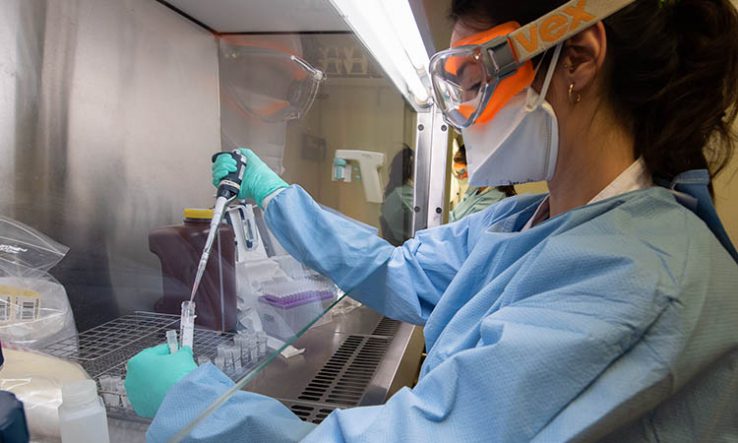
Image: Hospital CLINIC [CC BY-ND 2.0], via Flickr
Medical research not related to the pandemic has taken a hit, say scientists
The concentration of academic and financial resources on Covid-19 research is negatively affecting scientific progress in other fields, a group of 19 science and medicine societies has written in an open letter.
Medical research projects not aligned with the pandemic—including studies in epidemiological science, population medicine, health care research and patient studies—have struggled to proceed during the past year, the societies said.
Some fields are detrimentally affected by a funding focus on Covid-19—but there are other barriers to research caused by the pandemic, the letter stated. For example, work on preventing disease outbreaks has been made more difficult by social distancing restrictions on field work, the societies said, while research on tropical diseases is affected by travel restrictions.
Protective measures have also made data collection from patients more difficult, the groups wrote in the letter, published on 10 March. Public health research was stymied during the high-intensity phases of the pandemic, during which only patients with severe disease could receive surgery.
These problems have led to delays in recruitment and significant systematic bias in samples and results, the societies warned. “Researchers have had to abandon or pause their research projects in order to devote themselves to controlling the crisis in their areas of care,” the letter stated.
Furthermore, the writers said universities had experienced structural bottlenecks as staff were sent home, leading to slower administration. To keep resources focused, some ethics committees do not currently process project applications without a direct Covid-19 association, the letter warned.
To address this combination of challenges, it is “urgently necessary” to enable an extension of affected projects, the societies said. Otherwise, this work may not be completed satisfactorily, and results could be lost.
“This would mean a considerable waste of research funds,” the letter concluded.